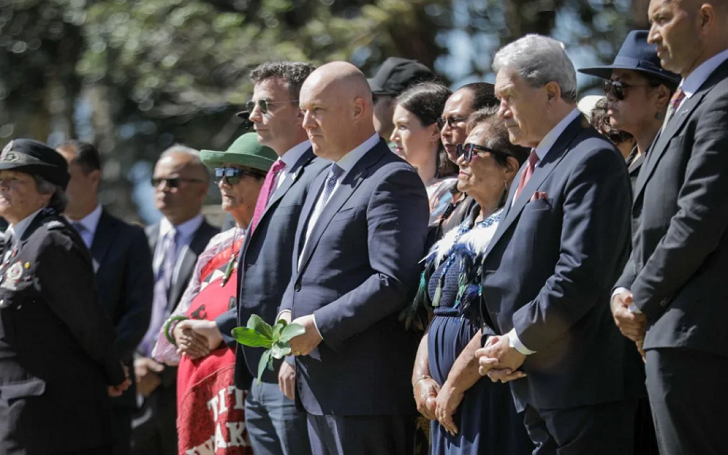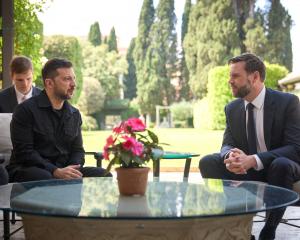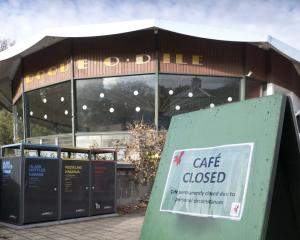
Waitangi no-show by PM dodges challenge
Waitangi Day commemorates the signing of Te Tiriti o Waitangi and crowds in excess of last year's 80,000 are expected to be there. Apart from the planned celebrations of our nation's founding document, there is heightened committment and anger, due to what many see as the coalition's attacks on Māori.
Act New Zealand, the 8% party, has pushed a Treaty Principles Bill which essentially reduces the Treaty mana of tangata whenua to Equal Rights for All, that is, the tyranny of an uninformed or misinformed majority.
It is disappointing, though not surprising, that Christopher Luxon is too cowardly to be a leader and face this challenge in a heated situation, which he himself fomented by folding to David Seymour's offensive and radical Bill.
English and treaties
I would like to correct a statement made in one of today's letters to the editor (7.1.25) which referred to the level of literacy amongst the rangatira who signed Te Tiriti o Waitangi.
It is true that English was not spoken or used by Māori. Everyone living in this country however needed to speak te reo just to get by on a day-by-day basis.
However it is not correct to say that te reo Māori was not a written language by the time Hobson arrived seeking to get a treaty signed with the hapu in 1840.
Ngāpuhi gave evidence in their presentation to the Waitangi Tribunal of the level of literacy, in both reading and writing by the chiefs. The missionaries who had travelled to these islands had created a written form of te reo as one of their priorities along with converting of souls. They used the Bible written in te reo as their instrument of instruction and by 1840, they had already set up a printing press in the Bay of Islands
Yes there are significant differences between what Hobson wanted and what the rangatira were prepared to allow him to have. This was not a treaty to end hostilities between Māori and the British.
It was a treaty of friendship which offered British settlers and others a governor, a mechanism which would protect them as well as control them.
We need to embark on a well-resourced and positive process that results in healing our history and building from a basis of honesty about our past.
The past
A friend sent me a copy of a newsletter from Queenstown Lakes District Council wherein an invitation is extended to commemorate Waitangi Day. Emblazoned on the invitation is the statement "We walk backwards through life with our eyes fixed firmly on the past".
Incredible. Whoever dreamed up this nonsense has no understanding of the aspirations of New Zealanders.
They seemingly have no appreciation as to the cause of "The Troubles" in Ireland or the dreadful events in the Balkans less than 30 years ago, where settling of old scores led to death and destruction.
Further, whoever concocted and approved this nonsense does not understand why thousands around the world have been coming to New Zealand to start new lives over the past 250 years. It was with their eyes fixed firmly on the future having aspiration to build and contribute toward a peaceful and prosperous future in the interests of not just themselves but the entire nation.
Those who walk backwards are destined to hit a wall.
In recent years I have heard plenty from New Zealanders upset with the direction of the country. If this nonsense is typical, I can understand why.
Praise and a warning from further afield
I write from Adelaide in praise of your newspaper, which was my local paper growing up in Otago. In particular, I write in appreciation of Gwynne Dyer’s World View articles. They are provocative more often than not, but also informative.
On Jan 6 Mr Dyer rightly concentrates on climate change as a huge challenge. He points out that, while we need to reduce emissions, drastically, we have never done so, except in the unusual circumstances of the pandemic: a depressing observation.
However, I question climate engineering as the best remedy. Cooling of part of the earth would suit some, but not necessarily their neighbours, for example, and would likely affect winds.
However, it may have to happen, out of desperation, to buy us time while we all accept that it is whole way of living that needs to change. That certainly includes Australia and New Zealand.
Address Letters to the Editor to: Otago Daily Times, PO Box 517, 52-56 Lower Stuart St, Dunedin. Email: editor@odt.co.nz











